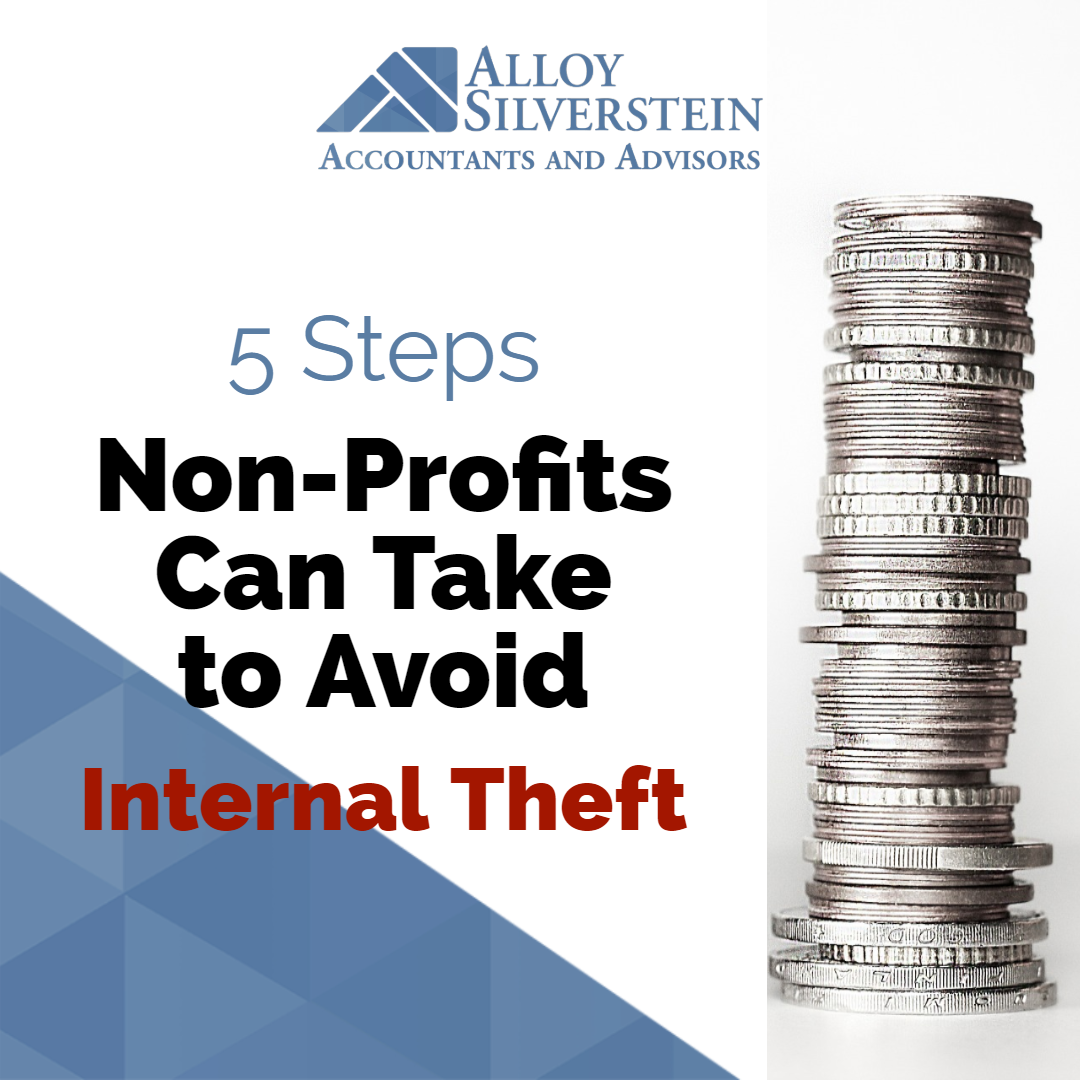

Each year, employees steal about $40 billion from American businesses. Unfortunately, nonprofit organizations are among these businesses. To avoid internal theft, put these basic control and accounting procedures into effect.
Prepare a detailed annual budget to establish expense guidelines. Record and allocate expenses to general ledger accounts in the same manner in which they were budgeted.
Different people should be given responsibility for authorizing and recording transactions and for maintaining custody of assets. This reduces any one person’s opportunity to both perpetrate and conceal errors or irregularities.
Many nonprofits have a conflict of interest policy or ethics statement in place. These policies call for employees and officers to disclose any interests they have in companies doing business with the organization. Any contracts entered into with the related parties should be reviewed and approved by board members and officers not involved in the transactions.
Consider using a bank lock box service to process receipts. In addition, assign someone unrelated to the accounting process to open the mail, restrictively endorse all incoming checks, and prepare a list of the checks received. This list should be compared to deposits made.
When a nonprofit receives numerous cash receipts (such as registration fees at an event or Sunday collections at a church), two or more people should handle and count the cash receipts and certify the total together.
Reviewing and reconciling bank statements will reveal any unusual cash disbursements or evidence of check fraud. Unopened bank statements and correspondence should be sent to someone outside the accounting function to allow an extra set of eyes to review these critical documents.
Establishing adequate internal control procedures is the best deterrent to internal fraud and embezzlement. Please contact us if you would like assistance establishing or reviewing your procedures.
Empowering business owners and individuals in South Jersey and Philadelphia to feel confident through proactive accounting and advisory solutions.